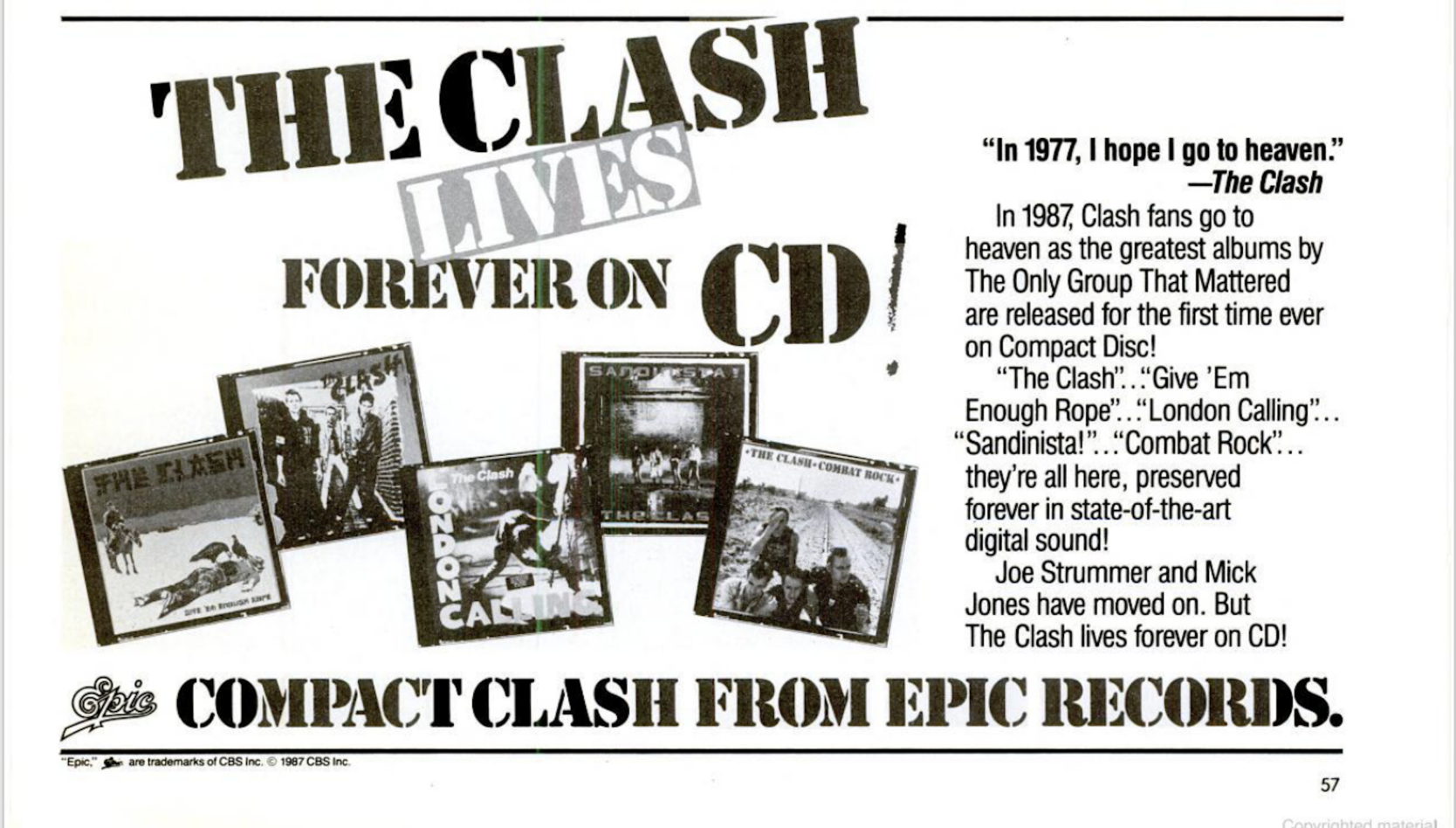In 1987, CDs were still called Compact Discs, and they were forever! With an exclamation point.
In 1987, all eight members of The Clash — yes, there had been eight — were still alive. Some of them were still speaking.
In 1977, CBS/Columbia Records refused to put out The Clash’s debut album, the imaginatively titled The Clash, already a big seller in England, in the U.S. Instead, it sold 100,000 copies as an expensive import, and the band’s second album, Give ‘Em Enough Rope, became the first official American release. Followed by a grudging release of the first album. Which was now the second one.
In 1987, the record label was advertising lyrics from an album they’d refused to release.
In 1987, CDs came in what was called a longbox. It was a whole lot of extra cardboard/paper and shrink wrap, designed so CDs could fit record store racks built for vinyl LPs. Longboxes were also supposed to make CDs harder to steal. No statistics exist on how many CDs by The Clash were stolen in 1987, but let’s presume there were plenty once you secretly tore them out of the stupid longbox.
In 1987, record labels were only just starting to realize they could get listeners to buy the same music you’d already bought on vinyl if they put it out on CD. And they could price them a lot higher this time. In 1987, record labels weren’t much smarter than Detroit car manufacturers. (And just because the only CD players around today are in old cars, there’s no truth to the theory that CD players were gasoline-powered.)
In 1987, if you still listened to vinyl, everybody thought you were lame. Or old. Or old and lame. Or Neil Young.
In 1987, the final album from The Clash, 1985’s Cut The Crap, wasn’t mentioned in this ad. The ad even screwed up “The Only Band That Matters” catchphrase, calling The Clash “The Only Group That Mattered.”
In 1977, The Clash were widely considered to be sell-outs for signing with a major label.
In 1987, you’d think CBS/Epic could have bought something bigger than a crummy third-of-a-page ad for the entire Clash catalog. But, you know, you take what you can get.





